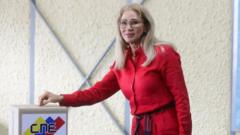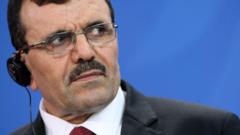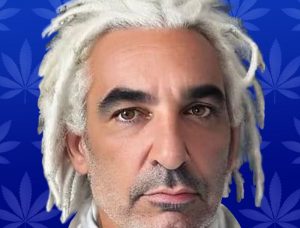The recent court rulings, viewed as politically motivated, underscore Tunisia's regression from its democratic roots post-Arab Spring and highlight fears surrounding governmental oppression.
**Tunisia's Judicial Repression: Heavy Sentences for Opposition Leaders Raise Concerns**

**Tunisia's Judicial Repression: Heavy Sentences for Opposition Leaders Raise Concerns**
In a concerning development for democratic norms, Tunisia has sentenced nearly 40 opposition figures to significant prison terms amidst an ongoing authoritarian shift.
In a disturbing reflection of Tunisia's deteriorating political landscape, a local court recently imposed harsh prison sentences on approximately 40 prominent opposition figures, including outspoken leaders, lawyers, entrepreneurs, rights advocates, and journalists. The official news agency, TAP, reported sentences ranging from 13 to a staggering 66 years for the convicted, tagged with charges of conspiring against state security.
These developments signal an alarming trend toward authoritarianism in a country once celebrated as the beacon of democratic aspirations in the Arab world. Tunisia rose to global prominence after being the birthplace of the Arab Spring in late 2010, which ignited mass uprisings against autocratic rule across the region. However, the political climate has sharply shifted as President Kais Saied consolidated power following a controversial power grab in 2021.
Over the past decade, Tunisia achieved significant milestones, including free elections, a robust civil society, and a relatively open media landscape. Yet economic stagnation, declining public finances, and increasing societal divisions regarding the influence of political Islamists have fueled dissatisfaction. Amidst this turmoil, many Tunisians initially turned to Mr. Saied, lured by promises of reform and stability.
Nearly four years after his takeover, however, Saied's administration has marginalized democratic institutions. Experts point to the worsening economic crisis, compounded by aggressive repression aimed at silencing dissent. The media has faced crucial restrictions, and many citizens harbor fears regarding potential retribution for criticizing governmental actions. Essential independent bodies, including those responsible for elections, have also fallen under Saied's control, raising further alarms about the erosion of democratic norms.
This situation has prompted human rights organizations and legal professionals to denounce the charges against opposition members as unfounded and politically driven, illustrating the significant challenges facing Tunisia's aspirations for genuine democracy.





















